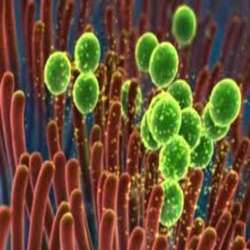Natural Chemicals in Black Tea

The chemical composition of tea leaves is as follows:
- Moisture: 5 – 8%
- Aromatic oils: 0.5%
- Caffeine: 2.5 – 5%
- Nitrogen: 4.75 – 5.5%
- Soluble substances: 38 – 45%
- Tannin: 10 - 24%
- Minerals: 5 – 5.75%
The primary effects of tea are due to alkaloids, caffeine (2.5-5%), tannin (10-24%) and aromatic oils. It is not only composition of tea leaves that is harmful but also the composition of infusion which is prepared by boiling tea with water.
Substances inherent to tea leaves include essential plant Volatile oils, caffeine and polyphenols. It also contains small quantities of Theobromine, Theophylline, Tannic acid, Gallic acid, quercetin, xanthine adenine, saponin and “theine” its chief alkaloid (identical with caffeine)
The volatile oil is most abundant in green tea.
Facts about tea reveal that the oils provide the tea’s aroma, caffeine serves a stimulant, and the polyphenols are attributed to a tea’s anti-oxidant properties.
The type of fermentation process tea leaves undergo determines the level and impact of the chemicals found in various tea types.
For example, black tea, which undergoes complex fermentation, evokes a strong scent and has the heaviest concentration of caffeine.
On the other hand, white tea, with its limited processing is best known for healing and protective properties that remain in the leaves from polyphenols.
Green and oolong are known to feature moderated levels of caffeine, aroma and antioxidant properties, which ties to their partially fermented processing.
Contact Us
Govind Madhav Herbal Tea
B 29-30, Hari Nagar,, Delhi - 110064, India
Call Us : View Mobile Number
Phone : +91-11-45615006
E-mail : govindmadhavtea@gmail.com
